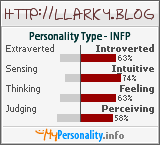‘I have raised myself a monument not made by human hands’
- Exegi monumentum
I have raised myself a monument not made by human hands,
The path of the people to it will never grow over,
Its insubordinate head has risen higher
Than the Alexandrian Pillar.
No, I shall not fully die – the soul in my fateful lyre
Shall survive my dust, and shall escape putrefaction –
And I shall be famous, wherever in the sublunar world
Even a single poet lives.
Tidings of me will go out over all great Rus,
And every tribe and every tongue will name me:
The proud descendant of the Slavs, the Finn, the Tungus
Who is now savage, and the steppe-loving Kalmyk.
And for long I shall remain loved by the people
For awakening noble feelings with my lyre,
Because in my cruel age I have celebrated freedom,
And called for pity to the fallen.
O Muse, be obedient to the command of God,
Do not be fearful of abuse, do not demand a crown,
Accept both praise and slander with indifference,
And don’t dispute with fools.
*Hillarious! One question. Does calling others "fools" make you somehow not belong to a group of fools? FOOL!
This poem also reminds me of this Argentinian chick(CHICA!, NINIA! I would have called her diva, if she stuck to her acting career)who died in 1952, Evita Peron.
Well, yes. You will die, rot and eventually the world will forget your existence. Unless you start a religion and spread a rumor that you can turn water into Coca-cola. But then, that would be a lie. It wouldn't be you that will be remembered. Just some guy who turned water into Coca-cola. But then again, sooner or later the human race will be destroyed and eliminated. Few people who have managed to remember your name will disappear from the earth.
People and their immortal fantasies..
‘Monument’ is not only a quintessential classic, in Calvino’s terms,
because of its teasing familiarity, but because it ‘comes to us bearing
the aura of previous interpretations’. Most commonly, the poem is
understood as Pushkin’s poetic testament. It is one of only a handful of
complete poems surviving from 1836, the last year of Pushkin’s life, a
time during which his existence was made almost unbearable by
financial worries, by the struggles to launch his new literary journal The
Contemporary, and by anxieties aroused by the persistent rumours of his
wife Natalya’s infidelity – rumours that were to lead directly to
Pushkin’s death in a duel in January 1837, at the age of only 37. - Catriona Kelly, Russian Literature introduction
And then she goes on blahing about the significance of the monument and the Stalinist literary culture. Well, I think what the poet was trying to say here with all the blahing about the monument is simple and rather direct.
O Muse, be obedient to the command of God,
Do not be fearful of abuse, do not demand a crown,
Accept both praise and slander with indifference,
And don’t dispute with fools.
Here you can tell that he was in an angry, odious mood when he wrote this. It reeks of misanthropy.
However, he wants to be remembered. By rabbits? Nope. By people!
I have raised myself a monument not made by human hands,
The path of the people to it will never grow over,
This man is a rationalist. He doesn't want to be loved by people.(even though he says so because he's a poet! Poets are supposed to be romantic, using abstract words like love, dream, unicorns, etc haha) He just wants to be respected.
Because in my cruel age I have celebrated freedom,
And called for pity to the fallen.
How condescending! towards whom? ->
Accept both praise and slander with indifference,
And don’t dispute with fools.
-> Towards "the fallen, the fools" who he wants visiting his grave(posthumously of course).

No hay comentarios:
Publicar un comentario